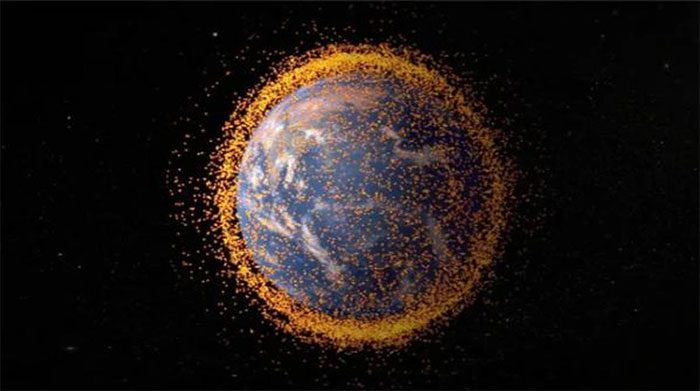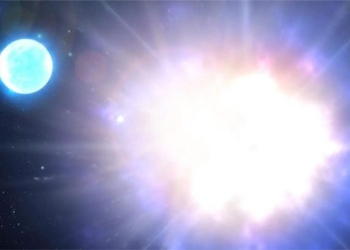Experts express concern that anti-satellite missiles create long-lasting debris in orbit, threatening space flights…
26 aerospace companies worldwide have signed a statement supporting international efforts to end “destructive anti-satellite testing” (ASAT). The goal of the statement is to move towards a safer and more sustainable space environment.
The signatories include several major organizations, such as Axiom Space – the company that has conducted two missions sending private astronauts to the International Space Station; and Planet – a company that collects Earth observation data using hundreds of satellites.

NASA graphic depicting the amount of space debris currently orbiting Earth – (Source: NASA).
In April 2022, the United States committed to not conducting destructive ground-based anti-satellite missile tests (DA-ASAT). In such tests, a missile is launched from the ground (or from sea vessels or aircraft) targeting a defunct or dying satellite.
However, experts argue that ASAT tests pose a threat to humanity by generating more debris.
The recent statement noted: “These tests can create debris that persists in orbit, threatening national assets, commercial spacecraft, space flights, and various services that humans rely on daily.”
The statement also indicated that space debris is a direct threat to future economic activity and innovation in low Earth orbit.
This will increase costs for current and future space operations while creating uncertainty for investors and operators.
In September 2022, the United States introduced a resolution to end ASAT at the United Nations General Assembly, urging other nations to make similar commitments.
According to the Secure World Foundation (SWF), 37 countries are currently participating in this resolution. Among them are several strong space-faring nations, including Canada, France, Germany, Japan, South Korea, and the United Kingdom.
Direct ASAT activities are not merely hypothetical threats. For example, in 2007, China destroyed one of its defunct satellites, creating a new cloud of debris in Earth’s orbit.
Russia followed suit in November 2021, destroying a Soviet-era spacecraft named Cosmos 1408, generating thousands of debris pieces in Earth’s orbit.





















































